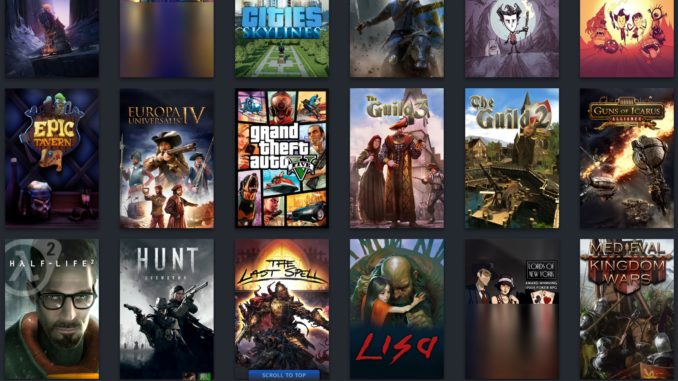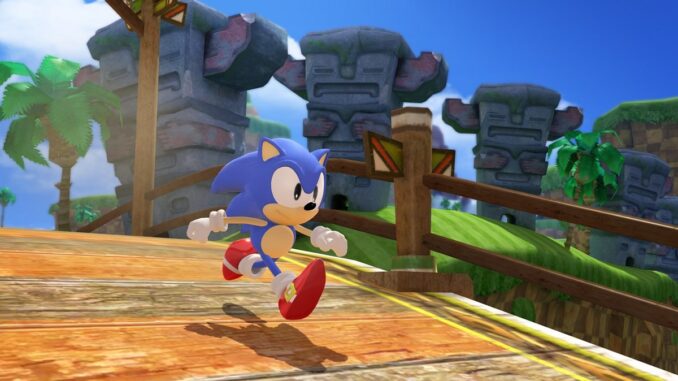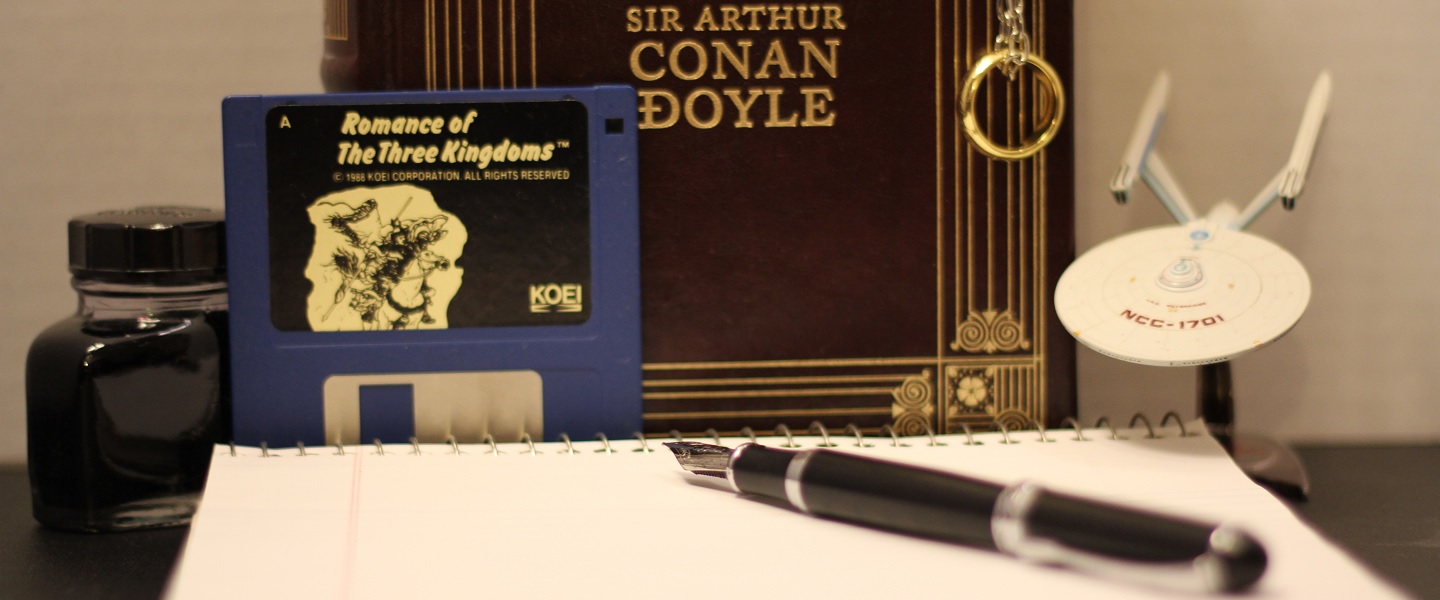
(Note: Originally posted December 2011 for Press2Reset)
In a digital age that continues to grow it seems as if, more and more, physical media is becoming a thing of the past. So far sales between digital and physical video games have been more or less equal. But digital sales have been climbing each year while physical sales have stayed even. Yet, as more people purchase digital over physical, are they making the right choice? For that matter, are digital games a permanent acquisition or is it nothing more than a long-term rental?
One could argue that the benefits of buying digital games are reason enough to forego the physical copy. There is no need to worry about rearranging things so that there is room on the shelf, the game can be downloaded quickly, and there are many great sales where you can get the game cheaper than its physical counterpart.
Where once you could only cram 25 games onto one shelf, you now have a hundred games on your hard drive (yes, size does matter). When you download the game you don’t have to worry about looking for the disc, inserting it into the drive, and then having to put it back. Should you decide to uninstall the game you can always go back to the digital distribution service of choice and re-download the game whenever you want.
In the end you are saving space, time, and money, so it can be said that digital gaming is convenient. You no longer have to drive to a store, buy a game, then drive back home or even order a game online and wait for it to come in the mail. Despite the convenience, though, it might not be what people expect.

You see, recently it was announced that Direct2Drive had been acquired by GameFly. This occurrence brings to light a couple of problems that are inherent when it comes to the digital side of the video game industry.
If you look at the Faqs page, related to the transition, the first thing that consumers are told is to download their games and guides. The reason for this is that GameFly does not support those guides so, when D2D goes down, people who purchased the guides will no longer have access to them. The same goes for certain video games. GameFly’s catalog does not cover everything in D2D’s catalog which means that consumers will no longer be able to download games they paid for.
Sonic Generations, for example, is a newly released game that can be purchased on Direct2Drive but can only be rented on GameFly. So if someone were to purchase the game from D2D, and fail to download it before the deadline in January, then what happens? It is not available through GameFly and there is no guarantee that it ever will be. The same goes for some of the older games such as the first Mass Effect title. It is available on D2D but not GameFly (Mass Effect 2 is available though).
So while GameFly assures customers that they will take steps towards all titles being made available prior to the switchover, or shortly afterwards, that is not a guarantee. Nor is it a guarantee that those who purchased the game through D2D will be able to get it through GameFly for free.
The possibility exists that GameFly might not, or be unable to, add those missing games to their catalog. If that is the case, then should the affected consumer lose their files they will have to re-purchase the game in order to play it again through another digital service.

This brings up the point that when it comes to buying digital copies of games you don’t own them. It is nothing more than long-term renting. It doesn’t matter whether I purchase games through Steam, PSN, Xbox Live, Games for Windows, GameFly, or Origins. I am only renting the game.
If one of these businesses goes down then what happens to your digital library? It could be that a grace period might be offered to allow consumers the opportunity to download all their games before the time is up. However they might not even get that chance. But even then, that poses problems in and of itself in the form of the hard drives
Console hard drives are extremely limited and while PCs have the option of larger units (my PC has a 2 terabyte hard drive) you are still limited in other ways. The size of the hard drive and the size of each individual game itself will determine how many games you will be able to download and save. This could lead to people having to pick and choose which games they will save and which ones they will lose if they are limited by their hard drive space.
Then we move onto the next problem; the internet itself which makes digital distribution possible.
The most prevalent problem is internet speeds. Where I live my internet speed slows to a crawl during peak hours and holidays when the kids are out of school. In fact, each year it continues to get worse because my provider doesn’t bother to address this problem (Optimum). Not only that, but they are the only ones available to me so I have no other choice but to use them. Given the fact that America, back in 2009, was ranked 28th in the world when it came to average internet speeds, means I’m not the only one plagued by slow internet speeds.
However, even if speed wasn’t an issue, data caps are starting to become a staple for internet providers in an attempt to limit the amount of downloads which take place every day. Now according to my Steam Profile I have 252 games in my library. If Valve were to suddenly go out of business, what do you think my chances would be of downloading my entire collection of digital copies to my hard drive?
But it doesn’t end there.
Here I have a hard drive filled with all my games which I can no longer download because the service I bought them from no longer exists. So if anything were to happen to that hard drive then I would lose all my games for good, leaving me with the option to repurchase everything from another service or give up gaming.
But there is still the physical copy consumers can buy. The same physical copies which will take up space in your house, force you to put them in your drive, go to the store to buy them or wait with bated breath for the mailman to deliver it.
For some it is not worth the hassle given the convenience of going digital. A sentiment that is wrong because the physical copy still means that you own it and that you still have options even if the company that developed it goes under or no longer supports it (depending on the DRM used).
Take Star Wars Galaxies for example. Prior to the release of Star Wars: The Old Republic, SWG was taken down on December 15, 2011 after seven years. Yet, even though there are no longer any official servers running, there are private servers blazing at lightspeed. Anyone with a copy of SWG can find a private server and join them so that the saga can continue in a galaxy far, far away

While those running the private servers have written their own code in order to make this possible the player still needs a copy of the game in order to play. So the money you paid for that physical copy has not gone to waste. You still have the option to play the game even though Sony no longer supports it. The same can happen with any other MMO which finally goes down. Just like with SWG, the banner will be taken up by others and consumers will still be able to play the game.
With digital copies you don’t have those options if a service ceases to exist. Such an occurrence means you no longer have the game unless it is already on your hard drive. Additionally, if you are banned from a service you also lose access to all of your games which is even worse than having a digital distribution platform go out of business.
In the end, physical copies represent ownership and possibilities. You own that copy no matter what happens and you still have options when it comes to its online components should the game come with it. Despite the digital market’s continuing growth, buying physical copies is still the smarter choice. The economy is erratic and the video game industry has reached a point that if a company’s triple-A titles do not sell well, then they might go out of business because of the large budgets.
Anything can happen to any developer or publisher. After all, nothing lasts forever. Why should digital distribution be the exception?
Author’s Note: Support this site by donating via Paypal or even checking out our merchandise on RedBubble where you can find designs that cater to writers and readers. Money donated and
raised goes into paying for this website and equipment.
Interested in posting this article, or another article, on your website? Check out our prices to make that happen – https://tinyurl.com/mrxa56pp

